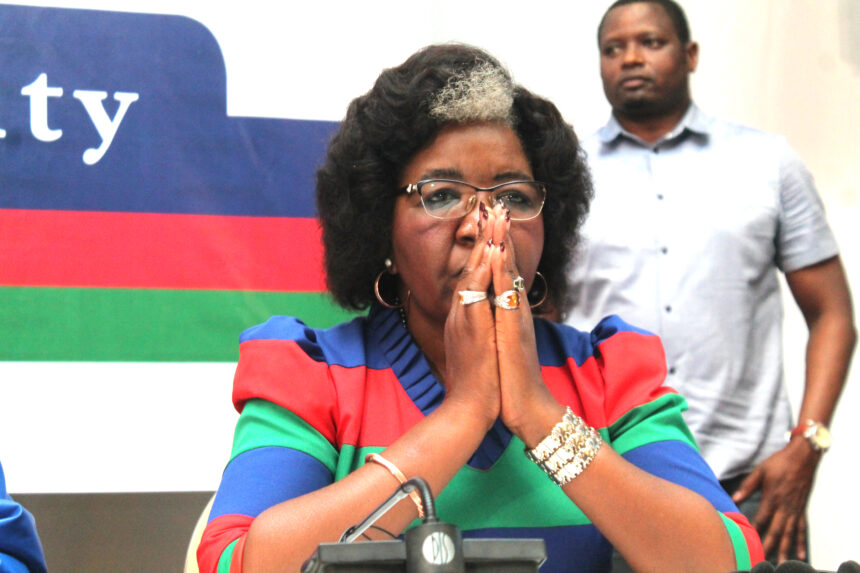Lahja Nashuuta
The ruling Swapo Party has denied spying on its Members of Parliament (MPs) following the surprise electoral defeat of one of its own, Fenny Tutjavi, to the Landless People’s Movement’s Utaara Mootu.
Swapo MPs have since been scratching their heads over who among them voted for Mootu.
The duo squared off for the position of deputy chairperson of the Standing Committee on International Relations, Defence and Security. Swapo occupies 13 seats on the said committee, leaving 11 to the opposition.
On the day of the vote, one of Swapo’s MPs, chief whip and deputy secretary general Uahekua Herunga was reportedly absent, reducing their advantage to just 12 seats.
Despite the advantage, Swapo’s Tutjavi lost to Mootu, meaning a Swapo MP voted for a member of the opposition.
The incident allegedly angered Swapo party secretary general (SG) Sophia Shaningwa.
So crucial is it that Shaningwa has allegedly directed all lawmakers on Swapo’s ticket to send her evidence of their votes, although the secret ballot under normal circumstances dictates that no one else knows how they have voted, apart from the voter.
Shaningwa did not respond to questions sent to her on Wednesday.
National Assembly spokesperson Sakeus Kadhikwa yesterday confirmed that the allegations were brought to their attention, and are being investigated.
“We have heard about the allegations, but we cannot respond at this moment as we are currently preparing for the State of the Nation Address,” Kadhikwa said. “However, Parliament will investigate the matter and provide a response in due course.”
Not true.
Responding to the claims, Herunga vehemently denied the assertions. He affirmed the party’s commitment to democracy and the independence of its MPs.
“I was not present on the day in question, but I can assure you that no such directive was issued by the secretary general’s office. Swapo does not spy on its members. It is their democratic right to vote for whoever they deem fit for a position,” he said.
The allegations were also rejected by Swapo Party Youth League Secretary Efraim Nekongo. Like Herunga, Nekongo preached Swapo’s respect for democratic values.
“The Swapo Party Youth League acknowledges the concerns raised by the Independent Patriots for Change (IPC) regarding the composition of parliamentary committees. However, Swapo is the people, and the people are Swapo. As the ruling party, we hold the majority in Parliament because of the democratic choice of the Namibian people. This majority naturally extends to leadership roles in parliamentary committees, in line with proportional representation,” Nekongo stated.
He argued that appointing experienced members to head committees ensures efficiency and continuity in oversight functions. “Swapo members have the necessary experience and institutional knowledge to effectively manage these roles,” he stated. Nekongo added that Swapo remains open to dialogue and potential reforms aimed at enhancing parliamentary oversight.
IPC
On Wednesday, the IPC registered its dismay around the composition of parliamentary committees, particularly Swapo’s dominance. “The ruling Swapo Party has now captured eight out of nine committee chairpersonships in the National Assembly committees that are constitutionally tasked with holding the government accountable,” reads IPC’s statement.
“This monopolisation of oversight isn’t just bad optics; it is a direct assault on the democratic principle of checks and balances. Under Article 59 of the Namibian Constitution, Parliament is empowered to establish committees to oversee the executive. And Article 63(2)(f) makes it plain: Parliament must scrutinise executive activity, summoning officials to account for their actions.”


